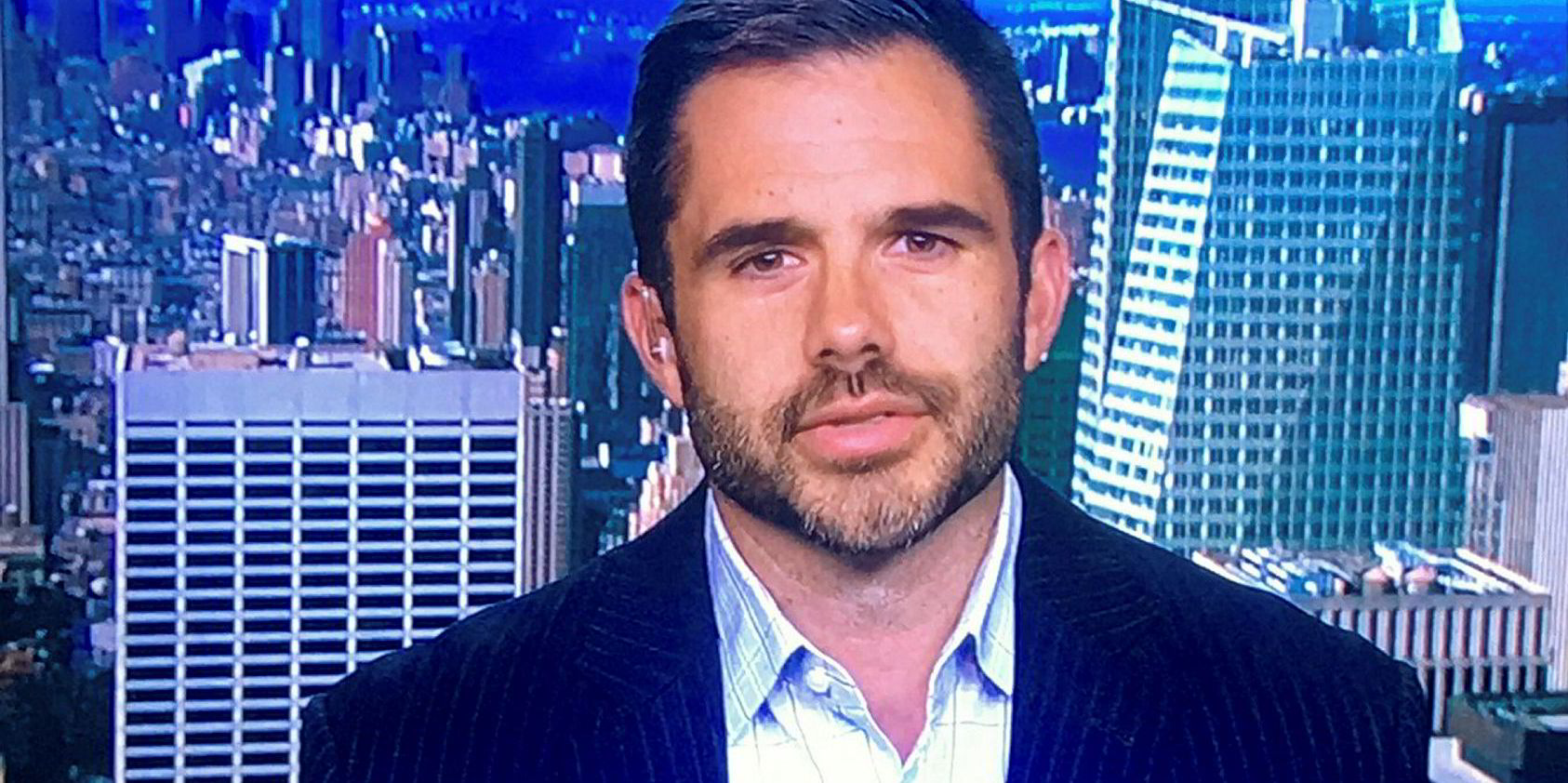Star Bulk Carriers Corp is defending its governance practices in the wake of a major ratings downgrade by Wells Fargo Securities annual scorecard of shipping companies.
The Greek-based dry bulk giant plummeted from 16th place in last year's league table of 56 US-listed companies to 41st this year. It is the biggest drop of any shipowner assessed.
The fall from grace was the result of related-party conflicts tied to its acquisition last year of two bulker outfits.
Star Bulk placed principals of the two companies on its board and retained vessel-management contracts, placing it on the wrong side of Wells Fargo analyst Michael Webber’s best-practice ratings.
Star Bulk president Hamish Norton told TradeWinds that while he understands Webber's decision, he does not believe it accurately reflects how investors will see the practices of the Petros Pappas-led company.
Difficult job
“Mike Webber has set himself a very difficult job," Norton said in what has the flavour of a respectful disagreement with the analyst rather than a heated debate.
“He goes at it with objective criteria and one of those is whether any of the management companies are owned by affiliates — usually these would be owned by the family of the CEO of that company.”
As Norton explained, Star Bulk essentially inherited these management vehicles when it acquired Arne Blystad’s Songa Bulk and Raffaele Zagari’s Augustea Holdings in separate transactions last year.
The two deals added 34 bulkers to Star Bulk's fleet as the company evolved to become shipping's largest listed dry owner, with 109 vessels and a market capitalisation of $735m.
Star Bulk seated both men on its board. It initially allowed a Blystad-owned company to keep managing its vessels — Norton said that deal has now expired — and still has Augustea ships under management of a private related company.

“Basically Raffaele Zagari is not in the same position of control as you would typically find in a situation where the CEO's family manages all the ships," Norton said.
From Mike Webber's vantage point he has criteria he uses consistently and the chips fall where they may ... From an investor’s point of view there's a big difference, and we think even Mike Webber would agree with that
Hamish Norton
“In this case, during 2018, two of our managers were affiliated with non-executive board members — from Mike Webber's vantage point he has criteria he uses consistently and the chips fall where they may.
'Big difference'
"We think from an investor’s point of view there's a big difference, and we think even Mike Webber would agree with that.”
Well, maybe to a point. TradeWinds put the question to the Wells Fargo analyst and found at least a little sympathy for Star Bulk’s position.
“Yes, I certainly understand the point Hamish is making, and wouldn’t completely disagree. However, within the context of our scorecard, it doesn’t matter how the conflicts got there, just that they’re there," Webber said.
“I’d also note that the line for complaints about intent probably starts around the corner at this point.”
Indeed, some shipowners previously have complained that they structured related-party transactions with their private companies in favour of the public company and still got dinged by Wells Fargo. Again, Webber was sympathetic but not moved.
“To be fair to [Star Bulk], they’re in a tough spot, and have had to effectively import some of those conflicts as a byproduct to adding scale and rolling up the space,” Webber said of the company’s role as a dry bulk consolidator.
“So, while I would certainly think about their score differently, I also wouldn’t change it — it has to reflect reality. Presumably they would exit those relationships when it’s feasible.”
Reflecting reality
According to Norton, it already has started. The Blystad management agreements had little remaining shelf life and are no longer in effect.
The Augstea deals are in effect for another few years, he said, and it looks like Webber and everyone else will have to live with them.
“We presumably could have bought them out but it wouldn’t have made financial sense,” Norton said. "I think most investors will be OK with it. I think they'll be able to figure it out and make up their own minds.”
Putting the conflicts into context, Webber said: “It’s also fair to note we’re effectively debating a technicality around [Star Bulk] — there are still much bigger fish to fry when [it] comes to governance in the space.
"You only need to look at some the related-party structures and deals in Quartile 4 [the bottom group] of the rankings to see that — be it Scorpio Bulkers, Scorpio Tankers, DryShips or others."






